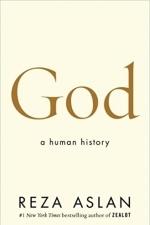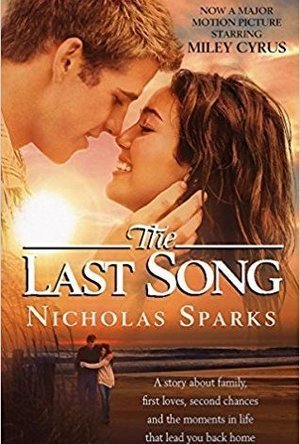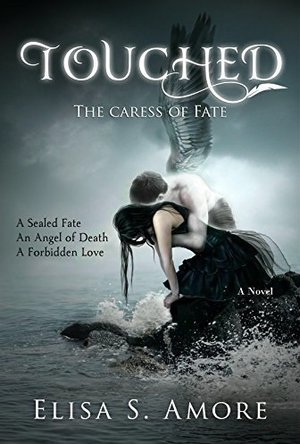
Poésie Collection (600 poèmes)
Book and Education
App
Une grande sélection de 616 poésies et fables ! Cette collection inclut les versions intégrales...

Roger's Mushrooms (Lite)
Reference and Education
App
NOTE: THIS IS THE 'LITE' VERSION OF ROGER’S MUSHROOMS. IT OFFERS THE SAME FUNCTIONALITY AS THE PRO...

Pocket Wiki for H1Z1 Lite
Reference and Utilities
App
Looking for help or the latest tips for the game H1Z1: King of the Kill or Just Survive? This...

Christ In Song
Music and Book
App
We are pleased to present the Christ in Song hymn treasury. These hymns are hand-picked for their...

iMissal Catholic (Mass Reading, Calendar, Lectionary)
Reference and Lifestyle
App
With over 4,000 5-Star Reviews, we hope that you will agree that iMissal is the #1 Catholic App. ...

Kim Kardashian: Hollywood
Games and Entertainment
App
Join KIM KARDASHIAN on a red carpet adventure in Kim Kardashian: Hollywood! Create your own aspiring...
Hazel (1853 KP) rated God: A Human History in Books
Nov 5, 2017
Where did religion come from? This is the question Reza Aslan, a scholar of religions, attempts to answer in his latest publication, God: A Human History. To date, Aslan has tackled subjects such as the life of Jesus of Nazareth, and the origins, evolution and future of Islam. In this book, the author journeys back to the earliest evidence of human existence and, using a mix of resources, theories and investigations, tries to determine how our ancestors conceived the idea of gods and souls. Maintaining the idea that the majority of humans think of God as a divine version of ourselves, Aslan also looks at the way our perception of life after death has altered due to the changes in our governments and cultures.
Reza Aslan claims that he, a Muslim-devout-Christian-convert-turned-Sufi, is neither trying to prove or disprove the existence of God or gods. Instead, he is providing readers with a thorough history of religion with a strong suggestion that we, as believers, have fashioned God in our image, and not the other way around.
Insisting that belief systems are inherited from each previous generation, Aslan takes a look at ancient cave drawings where he, and many other theorists, surmise that a form of religion was already well underway. Lack of written word results in a lot of speculation and hypothesis as to what these, usually animal-like, drawings represent, however, many have come to the conclusion that early humans had some form of animistic belief system.
Although not a dig at religion, after all, the author is religious himself, the following chapters bring in to question the authenticity of past and present beliefs. With reference to various psychologists, Aslan poses the theory that ancient humans may have misinterpreted dreams as evidence of a spirit realm. With no one qualified to clarify the things they did not understand, anything without a clear explanation may have been attributed to a god or gods.
As the author describes how religious ideas may have developed from these primitive beliefs to the fully detailed faiths of today, he labels the human race as anthropocentric creatures that have based their religions on human traits and emotions. By reporting in this way, it comes across that the past ideas of the soul, spiritual realms, gods and so forth could not possibly be true, yet, as the final chapters suggest, Aslan is still adamant about the existence of God.
Aslan’s narrative speeds up, finally reaching the recognizable religions of today. Beginning with the Israelites, enslaved by the Egyptians, the author explains, using biblical references, how the first successful monotheistic religion came about. However, researchers have studied the early Bible texts and are inconclusive as to whether the God worshipped by the Jews was the only divine being or whether there were others of a similar standing.
Next, Aslan explores Christianity, posing more questions than he solves, for example, is God one or is God three (i.e. the Holy Trinity)? He defines and compares the definitions of monotheism and pantheism, eventually bringing in Islam and the development of Sufism, which he is not afraid of admitting he agrees with.
God: A Human History is disappointingly short, ending with the feeble conclusion that humans are born with the ability to be convinced of the existence of a divine being and the soul, but it is our own choice to decide whether or not to believe in them. The remaining third of the book is an abundance of notes on the texts, bibliographical references, and Reza Aslan’s personal opinions about the ideas and theories mentioned in his history of religion.
Although an extensive history on the origins of religion, God: A Human History leaves readers none the wiser as to whether their belief is founded in truth or whether it is something that has evolved over time due to lack of understanding about the world. Granted, it was not the aim of the book to prove or disprove the existence of God, however, it may unintentionally sow seeds of doubt or, potentially, anger devout believers. However, there is no attempt at persuading readers to believe one thing or another, thus making it suitable for people of all religion and none.
Haley Mathiot (9 KP) rated My One and Only in Books
Apr 27, 2018
Sadly, it was a huge disappointment.
There were a few things that stacked against her in the beginning and I figured they would be made up for later, but it didn't improve. First, the characters.
I didn't like the main character, Harper. She was pessimistic, nosey, had no filter from her brain to her mouth, and her view of marriage was slightly offensive to me (only because I'm a Christian and a romantic. Don't mess with me.). I figured by halfway through the story maybe she'd see things the way they were, or that at least someone would hit her over the head and tell her to get a grip, but nobody did. I didn't like her interior monologue either. She didn't swear, but she had a few expletives that were... raunchy. I don't mind the "d" word too much. But supplementing the word "Crotch" or other phrases of similar nature just doesn't sit well with me.
And her boyfriend had the mentality of a sixth grader. Not joking. We'll leave it at that. Moving on!
Then there was her Ex. He was hot stuff, and I could see how the two of them could make it work (their personalities played off each other) but I just didn't like him. He was totally ignorant of the mistakes he'd made, at the halfway through point where we finally learn the back-story of her and him I seriously wanted to beat him over the head with a baseball bat--or a Bible--and give him a lecture about what marriage meant because the guy didn't get it. I didn't want the two to get back together, because it would be a recipe for disaster all over again. By the looks of it, neither of them had learned from their mistakes!
Second, I knew what was going to happen. She broke up with her boyfriend, she was going to fall for Nick again, and they were going to get married. Again. And because I didn't give a rat's poo about the characters, I didn't really care what happened to them.
Third, there were editorial mistakes. Now I know it's rude to point those out because when you read something dozens of times, you miss stuff like that. I understand that. I'm a writer. But I'm also a Professional Writing major and an editor, and I proofread stuff and I write promotional material and I edit things. It's what I do. It's my job. When I read a published book and I find things like "/= in the middle of the paragraph, or a grammatical error that is definitely not dialect or part of the character's personality, it makes me angry.
Fourth: I don't remember Kristin Higgins being a poor writer, but this book was poorly written and full of fragments. Sentences go like this: Subject, Verb, Direct Object. Or, Actor, Action, Description. Rearranging this causes passive voice, which is never fun to read, even though it does raise the word count. Ellipses should be used sparingly. Two or three per book: not per page or per paragraph.
And, no offense, but the dog was retarded. I know I shouldn't complain about the dog because now I'm just being whiney. But really? Maybe I'm biased about dogs, but I can't stand anything that bounces when it barks, even when it is in a book.
So those are five reasons why I stopped halfway through the book. This one is going to PBS. Don't get me wrong, I will continue to read Kristin's books. I've got a few more of hers that I hope will be as great as All I Ever Wanted, but this book was not her best work.
Recommended: Ages 18+ (Please note I don't know what sort of content was in the second half of the book.)
Haley Mathiot (9 KP) rated The Last Song in Books
Apr 27, 2018
When she finds Will, the cutest volley-ball players slash aquarium volunteer in her back yard helping her protect un-hatched sea turtles from being eaten by raccoons, she judged him as not-her-type. She doesn’t expect to find a friend in a jock-rich-perfect-family boy, nor does she expect that this will be the best—most exciting, most scary, most fun, most painful—summer of her lifetime.
My Review: I’m not really sure where to start here, other than I am so utterly pleased with The Last Song, I cannot begin to find words to describe it.
Ronnie, Jonah (her brother), Her dad Steve, Will… all the characters really, were such real characters. I felt everything they felt, I laughed when they laughed, and I (nearly) cried when they cried.
I hate it when books suffer from "happy-land syndrome—" where everything works out just too perfectly that it seems silly. The Last Song seemed to work perfectly, but it didn’t have that plot-manipulated feel to it. It didn’t feel like Sparks was just trying to move the story along and causing things to line up too perfectly to be realistic—it felt like the story was writing itself, and it was perfect. The pacing didn’t feel rushed or slow. It was not a thriller, but I did find myself sitting on the edge of my seat dying to find out what happens. I read it through in two or three days (which is fast for me right now, what with school the way it is!). There are twists, there are surprises—some beautiful, some painful, but all wonderful.
The writing was contemporary. It was easy reading and it wasn’t Dostoevsky, but it wasn’t bad either. The humor was light and witty and sarcastic, sometimes laugh out loud, and more times than I can count my sister would look up from her homework and say “Haley. What is so funny?” The perspective alternated between several different characters, but it wasn’t disorientating. It was all from third person perspective, but I still felt like I could get inside the character’s head.
The end was perfect. That’s all I can really say about it because any information would totally ruin the story. All the loose ends were tied, all the questions were answered, and the ending was open to the future but closed in a wonderful conclusion. Suffice to say I grinned so wide I couldn’t see, and my cheeks are still sore.
Audio Review: Let’s just say that I almost gave up reading The Last Song when I started listening to the audio. Pepper Binkley read Ronnie’s perspective and had a high pitched voice, she read a little too fast (which is rare. Most of the time readers are way too slow), there was no differentiating between voices of characters so you couldn’t tell who was talking, and she seemed up tight and nervous. Scott Sowers read the various men’s perspectives, and he read alright. He was a little slow and his voice took some getting used to but he was otherwise ok. I did get too frustrated to get far in the audio book though. I ended up quitting and reading the paperback. I recommend reading The Last Song over listening to it.
Content: blissfully clean. There was romance between Will and Ronnie, but no sex. It wasn’t needed, either. I feel like the fact that they didn’t sleep together added to the book rather than took away from it. It was also clean of foul language. There was some mention of God and the Bible, but never did it feel like Sparks was preaching.
Recommendation: Ages 14+
KittyMiku (138 KP) rated Touched: The Caress of Fate in Books
May 23, 2019
At first, I was concerned about how Evan's past and being would interfere with his curiosity about Gemma and their blossoming relationship, even just as friends. As the story went on, I found myself being drawn deeper and deeper into the story. I can't say that I loved Evan and at times I even doubted his intentions, but I found how Gemma's view of him and her feelings for him made me root for him. I can't say how he seemed to play her in games she had no idea she was in, to be repulsive, but her way of understanding and the way he made her feel, made me smile. I found that the romance in this book, very clean and innocent, was refreshing and definitely helped curb the romance craving I had.
However, even with the romance, the action towards the end made it quite delightful. It helped explain more about the Angels of Death and a few things that were unclear. I also enjoyed learning about a different idea about how Heaven and Hell worked as well as a new view on Adam and Eve from the bible. With the different ideas the story presented, I found it to be amazingly refreshing. I found Amore to have beautiful details on the surroundings and the people in the story. It helped to draw in the reader and make it easy to actually visualize the scenery and practically feel like you were there and experiencing the scenes yourself.
I found the descriptions of the emotions felt to also be very realistic. We all know how it feels to be betrayed or like we don't have control over ourselves and to see these characters struggle with these emotions and these urges to be close to each other, helped remind us how much love can make you feel crazy and yet be amazing. I enjoyed how the description of their actions towards each other and how it made the other feel created my own thoughts of the first time my husband and I met and even held hands. I was thoroughly pleased with how well love was portrayed in this book. I have rarely found romance books that created that warm fuzzy feeling within my heart as this book has done for me. Most romance books can be slightly dirty, but this one wasn't so and that pleased me. I often find myself not wanting to read triple x rated scenes in books. It is a book I would even let my daughter read when she turned thirteen, unlike other romance novels.
I also enjoyed how that death wasn't the end but the final step for the soul to get to where it belonged and that lives are just borrowed time until your acceptance into Heaven, or Eden as it was called, or into Hell was made. It really makes you think about if it was true or just another idea created about the death. I found it truly exciting to think about and discuss with others around me. It was a new take and a delightful thought to have presented it to me in such a wonderful story.
Overall, I would recommend this book to those who love the paranormal and romance. I would rate this book four stars out of five stars. Even though I would love to have had a little more, I would definitely think its a good opening to the series and makes it so you want to read the rest of the five book series.



